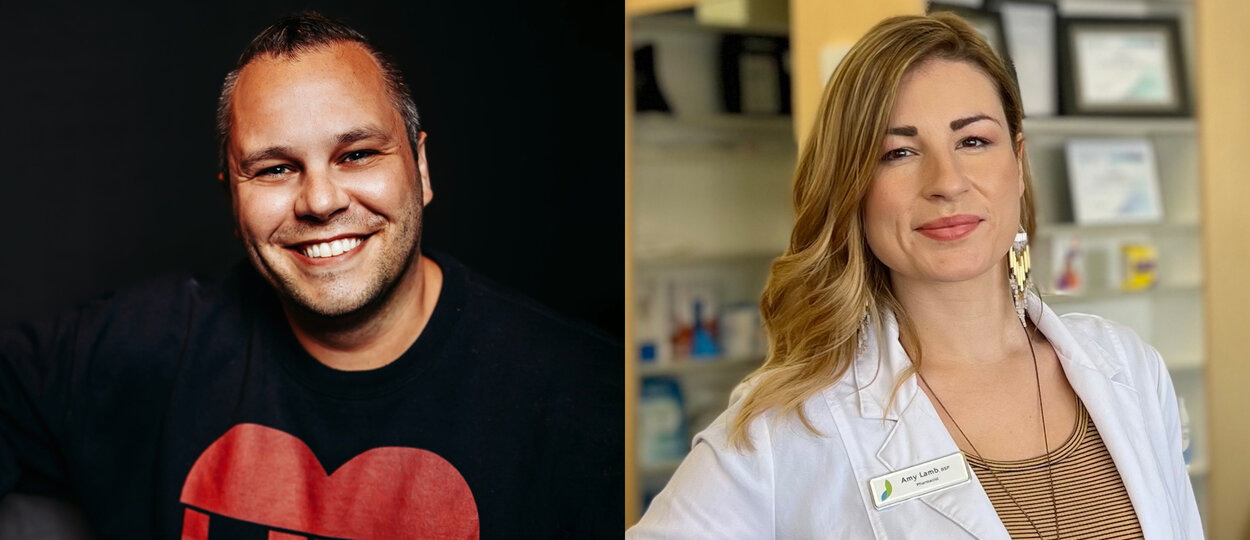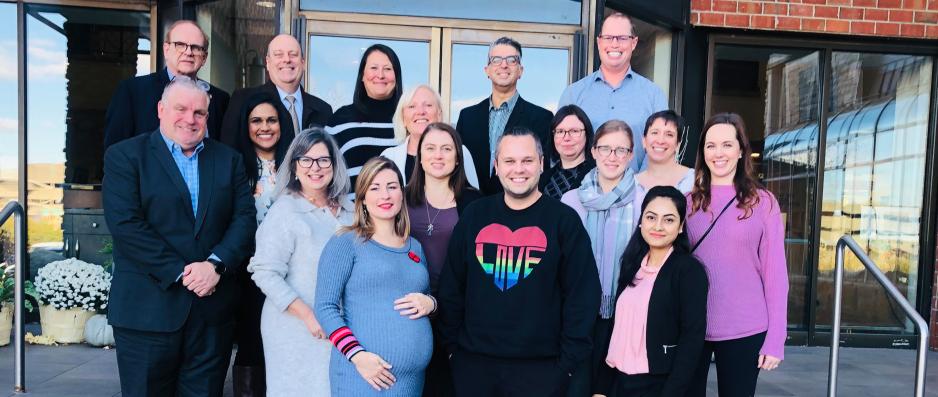Founder and chair Jaris Swidrovich says the group will also help build community and reduce feelings of isolation among Indigenous pharmacy professionals
When the board of directors of the newly formed Indigenous Pharmacy Professionals of Canada (IPPC) held their first official meeting in early March, Jaris Swidrovich felt a sense of joy and optimism. Swidrovich, founder and chair of the IPPC and assistant professor, teaching stream, at U of T’s Leslie Dan Faculty of Pharmacy, has wanted to create a network for Indigenous pharmacy professionals since he was a student at the University of Saskatchewan in 2006.
The IPPC now has a full slate of upcoming activities, partnerships within and outside the pharmacy profession, and federal funding to help address anti-Indigenous racism in Canada’s health care system.
“For years, I and other Indigenous pharmacists have worked as individuals with organizations who needed an Indigenous partner for education or training,” says Swidrovich, a member of Yellow Quill First Nation in Saskatchewan. “Now we have an entity that can lead these requests, and we’ll be able to do much more than any of us could alone.”
The idea of the association began to solidify during Swidrovich’s PhD in education, when he interviewed Indigenous pharmacy students and graduates across the country about their experiences with pharmacy education.
“Every person who participated in my study identified a feeling of isolation. We know there are quite a few Indigenous pharmacists across the country, but we don’t know who or where they are,” says Swidrovich. “Each of us identified that it would be nice if we had a community and could see ourselves reflected in the profession, brainstorm ideas, and support each other.”
The need for an Indigenous pharmacy association was clear. And since one didn’t exist, Swidrovich decided to create one.
Over the past couple of years, Swidrovich has worked with other Indigenous pharmacists – including Amy Lamb, a Métis community pharmacist, and Gezina Baehr, a First Nations hospital pharmacist – along with the administrative support of the Canadian Pharmacists Association, to spread the word about the IPPC, build its membership, and develop the organization. The IPPC publicly launched in June 2022 at the Canadian Pharmacy Conference, and in March it held its first official board of directors meeting.
The IPPC currently is in connection with about 40 Indigenous pharmacy professionals, including the 12 board members, that include Métis, Inuit, and First Nations pharmacists, pharmacy technicians, and pharmacy assistants across the country. And they plan to grow the membership as the IPPC becomes more established.
Lamb, who is also CEO of the IPPC, brings extensive experience in pharmacy advocacy and governance to her role, and she is looking forward to working with the board to develop the organization and their priorities through an Indigenous lens.
“We want to take that cultural lens and respect it as best we can and create a system that is going to represent something that will make our communities proud,” says Lamb. “Indigenous Peoples are knowledge keepers and storytellers. This is an opportunity for us to look at our membership and determine ways to empower their voices and perspectives and to share with the pharmacy profession and the world what an Indigenous pharmacy professional does, how they think, and how they care for patients.”
Federal funding will help address anti-Indigenous racism in health care
The IPPC recently received $380,000 funding from Indigenous Services Canada to address anti-Indigenous racism in Canada’s health systems, including but not limited to pharmacy. This funding will allow the IPPC to partner with other organizations, including provincial pharmacy regulatory and advocacy bodies, to provide education and training for their members, provide Indigenous perspectives on research issues such as data sovereignty, and provide a supportive community for Indigenous pharmacy professionals who are experiencing racism.
“Addressing anti-Indigenous racism involves tackling all of its forms.”
“Addressing anti-Indigenous racism is not just about patients. Indigenous pharmacy professionals also experience racism, whether that’s from colleagues, classmates, or even our patients,” says Swidrovich. “Addressing anti-Indigenous racism involves tackling all of its forms.”
A key part of addressing anti-Indigenous racism is to ensure that more Indigenous Peoples enter the profession, and the IPPC has plans to develop recruitment strategies that reach Indigenous high school students and advocate for equity seats at all pharmacy schools in Canada.
The IPPC has also launched a series of scholarships for Indigenous pharmacy technician students and also for Indigenous PharmD students to support their education at any university in Canada, including one four-year full scholarship. The goal is to also launch additional scholarships for students in pharmacy assistant programs in the near future.
Lamb is particularly looking forward to sharing the stories and experiences of IPPC members as a way of reducing the feeling of isolation in the profession that many members have identified.
“The idea that healing takes place alongside creativity and growth is such an Indigenous intention. If we can find ways to share our members’ stories in a way that is creative and inclusive of things that are ancestral and healing, I think that is going to make an impact in the profession,” says Lamb. “It will also reaffirm that connection that we as Indigenous Peoples and Indigenous pharmacy professionals have together, and hopefully the feelings of isolation will dissolve the more that we represent and share those authentic experiences.”
More News
Image

Faces of PharmSci: Kristy Scarfone
Co-supervised by Professor Jillian Kohler and Assistant Professor Jaris Swidrovich, MSc student Kristy Scarfone is researching how unregulated substance-related care and harm reduction vary across Ontario, with the goal of strengthening public health and showcasing pharmacists’ impact in this area.
Read More
Image

Research team aims to co-design diabetes and dementia support programs that meet community needs
Network for Health Populations funding will support collaborative project to improve health outcomes for immigrant communities in Mississauga.
Read More
Image

Pharmaceutical industry resident finds growth in new challenges
Pharmaceutical Industry Residency Program Award recipient AnnaMaria Passas gained new skills through residency and research project to improve marketability in industry.
Read More

